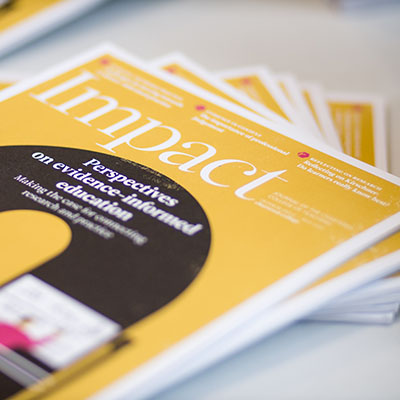What is the FEA Journal Club Project?
Funded by the Fair Education Alliance (FEA), this pilot research project will test how journal clubs can improve teacher effectiveness and collaboration between teachers and teaching assistants, specifically when supporting students with special educational needs and disabilities (SEND).
This project recognises the increasing need for high-quality professional development in this area so teaching staff can meet the growing level of need in their classrooms.
This approach is also unique in that it provides an opportunity for teachers and teaching assistants to come together to critically engage with the evidence base and explore how they can effectively apply these findings to support the students in their setting.
How does the project work?
Journals clubs will run on a monthly basis from October 2023 to March 2024. Over this six month period, each journal club group, led by one trained facilitator, will meet to discuss a specific article and explore the implications of this research for their own classroom practice.
Participants will be provided with the research article prior to the meeting and use the Critical Appraisal Tool to help assess the validity, trustworthiness and relevance of the evidence presented. They will bring these reflections to the journal club to discuss with fellow participants in their group.

What research articles will be read and discussed in these journal clubs?
The research articles for this project were selected by the Chartered College of Teaching’s project team, in collaboration with the Centre for Educational Neuroscience based at University College London. Over a six month period, participants read, appraised and discussed six research articles. Themes for the articles were informed by the findings in the EEF’s Special Educational Needs in Mainstream Schools Guidance Report. Each article explores a specific pedagogical strategy that is well-evidenced as having a positive impact on students with SEND. This project provided participants with the opportunity to interrogate the nuances of the proposed strategies, carefully considering the implications for students with specific learning needs in their setting.
The articles are largely summarised versions of original research papers. These research summaries were written by PhD students and Associate Professors based at the Institute of Education at University College London. We want to thank all our authors for their extensive contribution to this project.
Research articles can be found here.
Who is involved in the project?
We have 140 teachers and teaching assistants involved in the project, including 17 trained facilitators. Both our facilitators and participants are volunteers who have expressed an interest in developing an evidence-informed approach to support students with SEND in their setting. Our participants work in a variety of schools across the UK (and beyond!). We hope that the diversity of roles, experience and settings will contribute to rich and meaningful discussion in meetings.
How will the project be evaluated?
The project will take a mixed-methods approach to data collection. At the beginning and end of the project, all participants will complete an anonymous survey to assess whether there has been a shift in practitioners’ attitudes and ability to access and apply research findings.
In addition, we will conduct focus groups at the beginning and end of the programme to collect qualitative data about our participants’ experience of the project, focusing on research engagement and collaboration. Both sets of data will be closely analysed to determine to what extent the project achieved the aims above.
Outcomes from the project to be published in Summer 2024.



